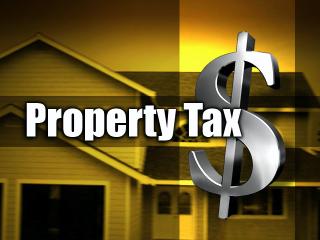 Rising equity is AWESOME! Anywhere from 15%-25% for for most Denver CO metro homeowners in the last 2 years. And it’s common for owners to think our homes would sell for more than our neighbor’s…..UNTIL TAX ASSESSMENTS come out! I’m getting blown up with tax questions….so here is the scoop on how property taxes work in Colorado and how to appeal them.
Rising equity is AWESOME! Anywhere from 15%-25% for for most Denver CO metro homeowners in the last 2 years. And it’s common for owners to think our homes would sell for more than our neighbor’s…..UNTIL TAX ASSESSMENTS come out! I’m getting blown up with tax questions….so here is the scoop on how property taxes work in Colorado and how to appeal them.
BACKGROUND:
Our local government in Colorado conducts evaluations every 2 years to assign a value to your home for taxation purposes. An assessment isn’t the same as a private appraisal, and the assessed value of your home isn’t necessarily how much you could sell it for today.
Real estate assessment letters are mailed to homeowners. The letter will include some information about your property, such as lot size or a legal description, as well as the assessed value of your house and land. Additional details—number of bedrooms, for example, or date of construction—can often be found in the property listing on your local government’s website. Your property tax bill will usually be calculated by multiplying your home’s assessed value by the local tax rate, which can vary from town to town.
If you think your home’s assessment is higher than it should be, challenge it immediately. The clock starts ticking as soon as the letter goes out. You generally have less than 30 days to respond, though the time frame varies not just between states, but within each state. Procedures are often outlined on the back of the letter.
STEP 1 – Gather evidence
Start by making sure the assessment letter doesn’t contain any mistakes. Is the number of bathrooms accurate? Number of fireplaces? How about the size of the lot? There’s a big difference between “0.3 acres” and “3.0 acres.” If any facts are wrong, then you may have a quick and easy challenge on your hands.
Next, research your home’s value. Ask a real estate agent (me of course!) to find three to five comparable properties—”comps” in real estate jargon—that have sold recently. The key is identifying properties that are very similar to your own in terms of size, style, condition, and location.
Once you identify comps, check the assessments on those properties. Most local governments maintain public databases. If yours doesn’t, seek help from an agent or ask neighbors to share tax information. If the assessments on your comps are lower, you can argue yours is too high. Even if the assessments are similar, if you can show that the “comparable” properties aren’t truly comparable, you may have a case for relief based on equity. Maybe your neighbor added an addition while you were still struggling to clean up storm damage. In that case, the properties are no longer equitable.
STEP 2 – Present your case
Once you’re armed with your research, call your local assessor’s office. Most assessors are willing to discuss your assessment informally by phone. If not, or if you aren’t satisfied with the explanation, request a formal review. Pay attention to deadlines and procedures. There’s probably a form to fill out and specific instructions for supporting evidence. A typical review, which usually doesn’t require you to appear in person, can take anywhere from one to three months. Expect to receive a decision in writing.
If the review is unsuccessful, you can usually appeal the decision to an independent board, with or without the help of a lawyer. You may have to pay a modest filing fee, perhaps $10 to $25. If you end up before an appeals board, your challenge could stretch as long as a year, especially in large jurisdictions that have a high number of appeals.
There are a few things to keep in mind as you weigh an appeal. The board can only lower your real estate assessment, not the rate at which you’re taxed. There’s also a chance, albeit slight, that your assessment could be raised, thus increasing your property taxes. A reduction in your assessment right before you put your house on the market could hurt the sale price. An easier route to savings might lie in determining if you qualify for property tax exemptions based on age, disability, military service, or other factors.
Need help. Give me a shout. Mike – 303-669-2744 x 105
This article provides general information about tax laws and consequences, but is not intended to be relied upon by readers as tax or legal advice applicable to particular transactions or circumstances. Readers should consult a tax professional for such advice, and are reminded that tax laws may vary by jurisdiction.



Leave a Reply